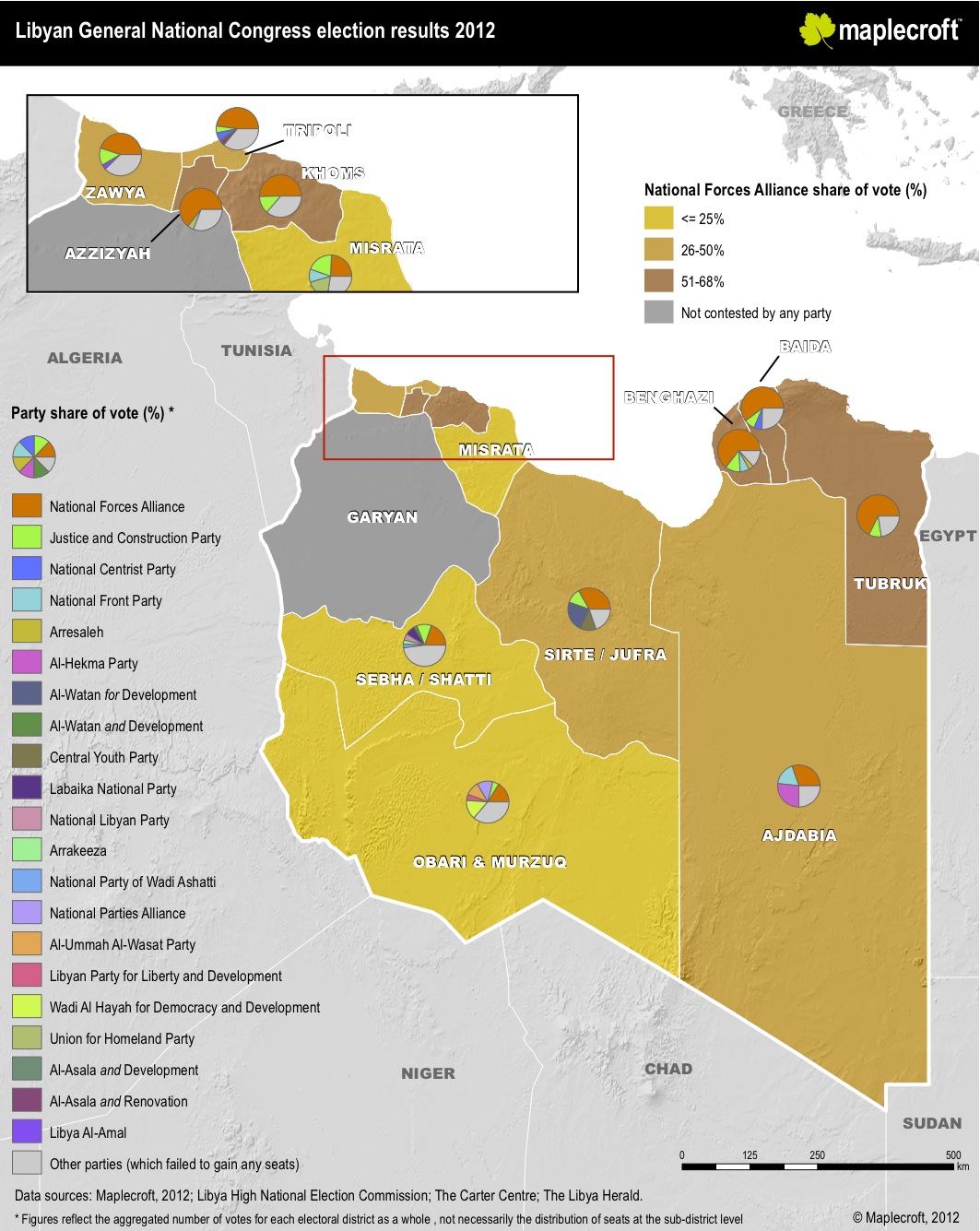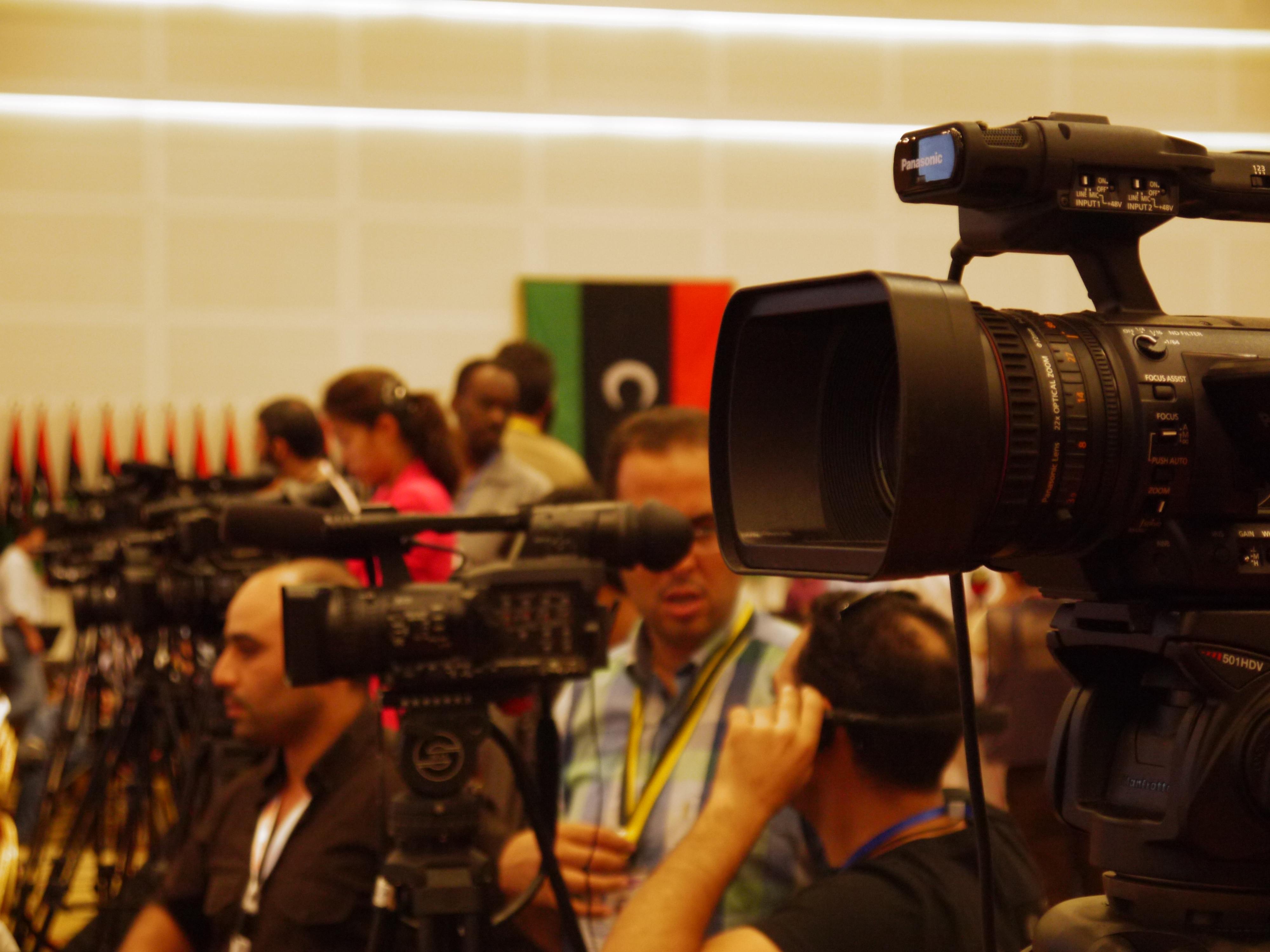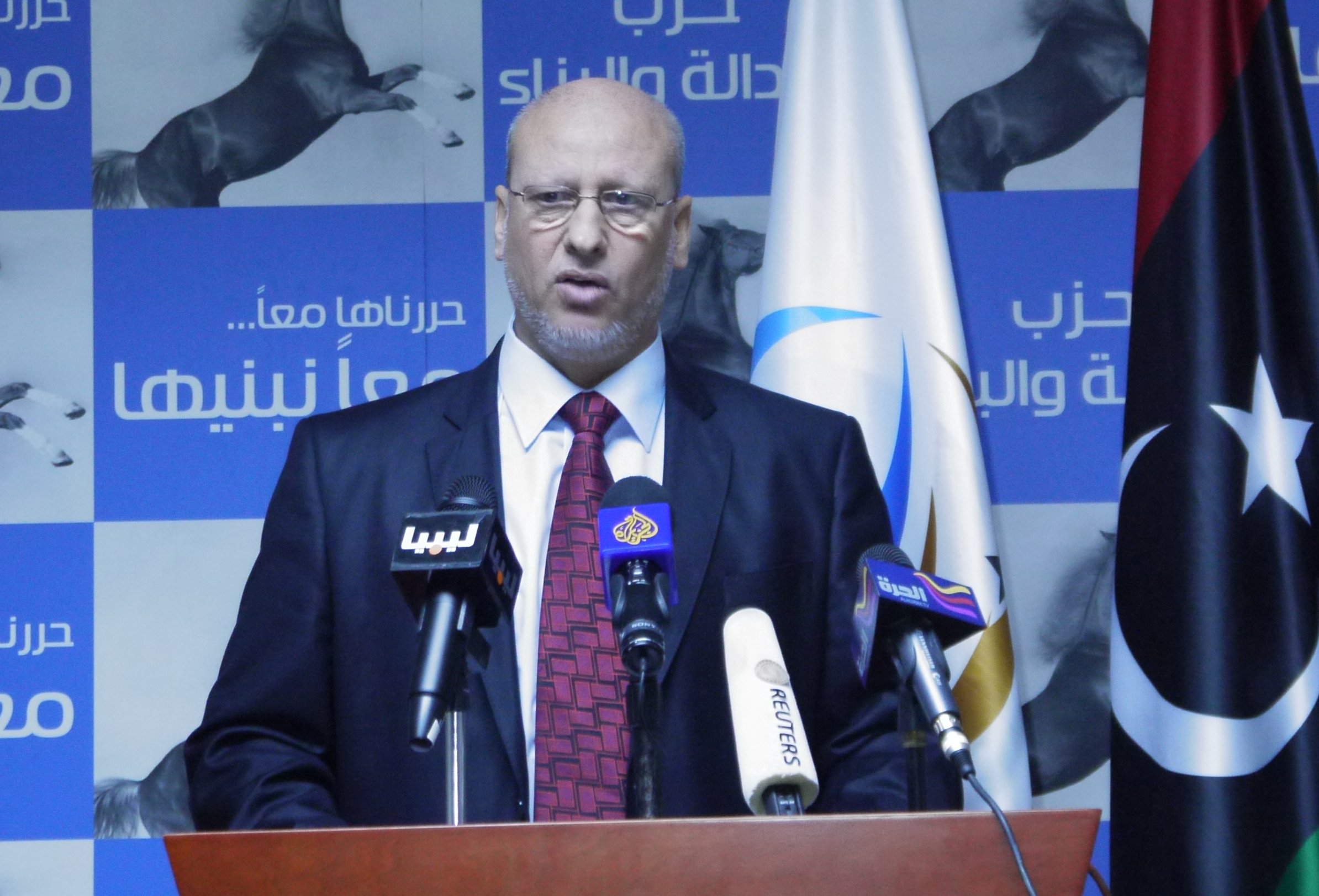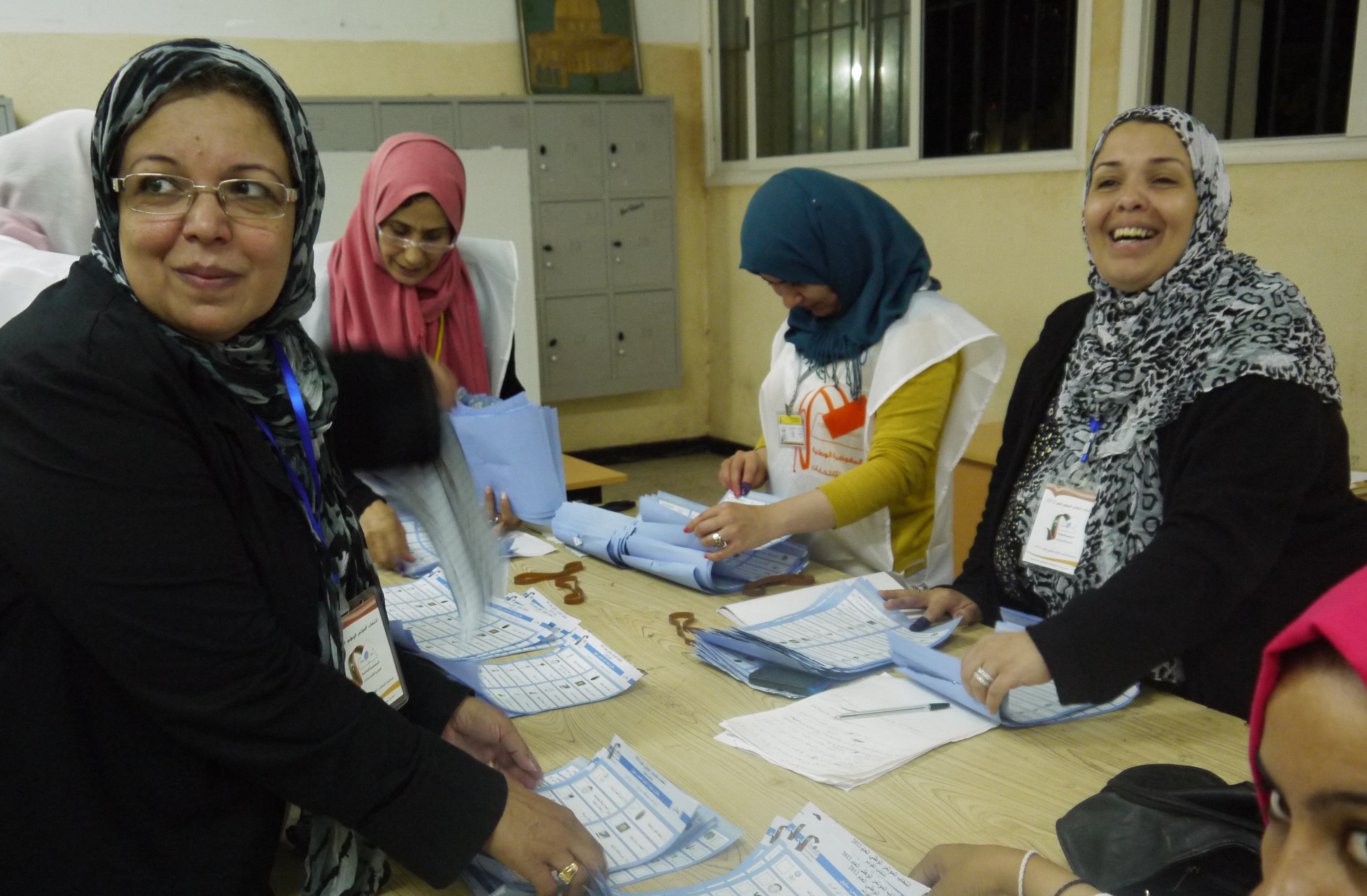By Nahla Al-Ageli and Yusra Tekbali
Tripoli, 11 June:
Delays to Libya’s democratic elections now give political parties more time to focus on . . .[restrict]campaign strategies.
The decision to postpone the election date for Libya’s National Assembly from 19 June to 7 July has been welcomed by political parties and independent candidates, who now have more time to focus on their campaigns in earnest. At a time when people on the street have not yet decided how to cast their votes, competition is fierce.
Now is the time for political parties and independent candidates to raise public awareness of their manifestos and political convictions. Even though the official list of candidates and parties has yet to be published and the ballot papers yet to be printed, election fever is running high, with every candidate working hard to garner support and attract votes.
In a country where free expression, open debate and political parties were prohibited for four long decades, Libya has seen anyone with a bright idea or financial backing running for office. There were an unprecedented 4,000 applicants, all of whom needed to go through the long vetting and appeals procedure, which has, in part, resulted in the Libyan Election Commission’s decision to delay the election.
The Voters
When we asked people how they were feeling about the forthcoming elections, many seemed confused. Even Nizar Ibrahim, a 25-year-old TV presenter at Al-Assema Channel, who is working on a programme designed to educate the public about the electoral process, said: “I am waiting for the final list to be published by the Transparency and Nationalism Committee. Only after that, will the image be clearer for us to choose. As a Tripoli citizen, I registered in Hay Andalus.”
Ibrahim’s role so far has been to raise public awareness and interview directors from the Election Committee for updates. The channel also airs the work of civil societies, such as the training of election observers and voter education campaigns.
“In terms of youth awareness and the electoral process, it is completely a new experience for all Libyans but we do see a strong desire from young people to understand it and contribute,” Ibrahim said.
Hiba El-Gamaty, a 22-year-old London resident whose father, Guma El-Gamaty, is running with the Taghyeer (Change) Party, said: “I am not sure who I’m voting for yet. There’s still not enough information out there for voters on which parties are running and what they stand for.
“Overseas voting is starting in London soon and we’ll be registering and voting at the same time. But I don’t feel we’ve received enough information. Maybe this is more the case for us Libyans abroad, as we can’t attend the talks and party awareness campaigns taking place within Libya.”
Some are planning to boycott the elections altogether. May Bushnaf, a 28-year-old who used to be a TV anchor at Libya Al-Ahrar Channel said: “I actually didn’t register and I will not vote because I am not happy with the voters’ distribution. I believe it is not fair to give the eastern part of Libya only a few positions, so I will not support the election with my vote. However, I have registered with the International Organisation for Migration (IOM) to help with the administration of the elections for voters in the United States. I see it as my duty to Libya.”
The Campaigns
Political analysts have identified four parties most likely to succeed, with the race mainly between the National Front for the Salvation of Libya (led by Mohammed Yousef Magariaf), the Justice and Construction Party (Muslim Brotherhood), the Nation Party (led by the religious scholar Ali Al-Salabi and Abdul Hakim Belhaj) and the National Forces Alliance (led by Mahmood Jibril).
But other candidates are working just as hard and will be super-creative in order to grab the public’s attention. We caught up with political activist and Tripoli University Professor Ali Omar Tekbali, a member of The Libyan National Party (led by Bashir Mohammed Rabti), who explained their history, position and current ambitions.
The party was originally founded in Egypt in 1981 as an opposition front – then known as The Libyan National Front – headed by Abdul Hamid al-Bakkoush, former Prime Minister of Libya under the Monarchy, and Bashir Rabti, former Chairman of the first Arab Union Republics’ Parliament, that included Egypt, Syria and Libya.
Tekbali said: “So far, we have 5,000 members from both sexes. We are based all over the country, but dominant in Tripoli, which doesn’t go down well with some. In fact, one of our female candidates was threatened and invited to join another party. A bullet was placed on her windshield and her car sprayed with bullets while she was in it. She did not cower down. We believe that women must be represented, despite their suppression by the ignorant.
“Our campaign is talking straight to needy people in poor quarters and urging them to come out and vote. We plan to distribute flyers with the names and pictures of our candidates, and posters with cartoons to show the differences between us and other parties.
“For instance, we will show a girl going to school with a bearded man asking: ‘What does this woman do outside her home?’ Another will answer: ‘Women are part of society,’ but our members would reply: ‘Women are complete partners in society’ – which is our real belief.
“Our top three aims for the future are Hurriya (freedom), Adalah (justice) and Mosawat (equality). We want a civil state governed by three independent branches of government, with free speech and dignity for all Libyans. We also want equality in wealth distribution and better education for everyone.
“We are poor though, and our finances come only from members’ contributions and fees. We don’t have any outside sponsorship and can’t afford big and extravagant advertising that costs 10,000 dinars a piece. Some parties have already violated the law and started using expensive billboards. Not only that, but when we went to report this violation, a bearded man in charge of election control told us without irony: ‘These billboards may have been placed by competitors to stain these parties.’
“We would, of course, love to have as many seats as possible but, because of our poor finances and the unfair competition with money and bribes, we would be lucky to get five seats.”
When asked how the Libyan National Party is different from the four main parties, Tekbali said: “We are genuine, sincere, and work without money for the sake of the poor, the deprived and the diminished. We are not tied to any superpower. The other four are supported by outside agendas and have money, but they are not popular.
“We are 100-percent Libyan and feel that we should remain so. We started the alliances of parties, but refused it when we saw that Jibril’s party was trying to take over. We are the party of all, by the work of all.”
The aim of the 200-members’ Assembly will be to form a government and draft a new Libyan constitution, followed by a referendum. Eighty seats have been reserved for parties and 120 seats for independent candidates, although alliances are expected once independents have been voted in.
The Assembly will tackle all the significant foundational issues relevant to this newly-promised and hard-fought for democracy. The major decisions will be the political system-model to adopt, whether to go federal or central, the role of Sharia law, the issue of the country’s wealth distribution and reconstruction and how to involve women and young people.
The Libyans have shown great enthusiasm for these elections, with 80 percent of eligible voters having registered, including Libyans resident abroad. The voting will be monitored by UN and EU observers to ensure legality, transparency and fairness. [/restrict]







